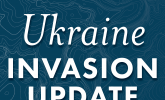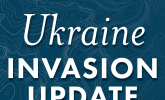Russian Offensive Campaign Assessment, April 2
April 2, 2022 - ISW Press
Continuing Russian operations along their new main effort in eastern Ukraine made little progress on April 2, and Russian forces likely require some time to redeploy and integrate reinforcements from other axes. Ukrainian forces repelled likely large-scale Russian assaults in Donbas on April 2 and inflicted heavy casualties. Russian forces continued to capture territory in central Mariupol and will likely capture the city in the coming days. Russian units around Kyiv and in northeastern Ukraine continued to successfully withdraw into Belarus and Russia, and heavy mining in previously Russian-occupied areas is forcing Ukrainian forces to conduct slow clearing operations.










